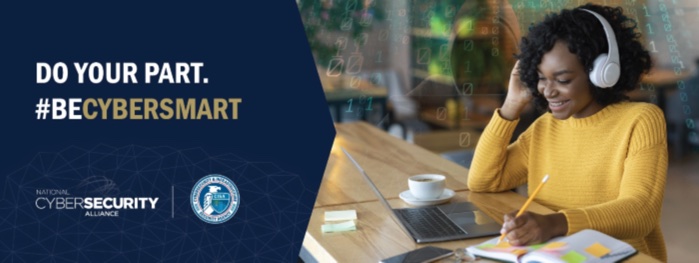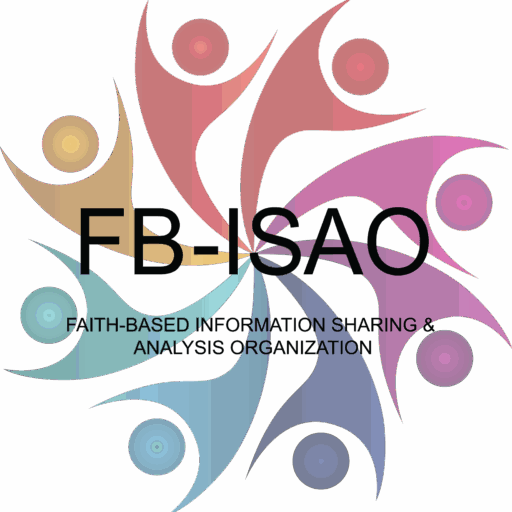It’s October! And while many are thinking pumpkin spice and everything nice, in the cybersecurity realm October has become synonymous with National Cybersecurity Awareness Month (NCSAM). But given cyber is part of everyday life and a cost of doing business in today’s world, NCSAM isn’t just for cybersecurity, it’s for everybody. Cybersecurity is a shared responsibility among all people. In fact, NCSAM was initially launched in 2004 to “ensure every American has the resources they need to stay safer and more secure online.” That includes individuals and organizations of all types and sizes – from enterprises, SMB’s, and “mom and pop” shops, to government entities, schools, non-profits, charities, and faith-based organizations like yours.
While the National Cyber Security Alliance (NCSA) kicks off this year’s “Do Your Part. #BeCyberSmart” theme, Faith-Based ISAO is proud to be among fellow ISAC/ISAO NCSAM 2020 Champions – Auto-ISAC, IT-ISAC, REN-ISAC, RH-ISAC, WaterISAC, National Credit Union ISAO, and CompTIA ISAO. For more resources on NCSAM, including how to get involved and materials to use to increase cybersecurity awareness at your organization, visit NCSA and CISA. See below for weekly themes and related activities.

Week of October 5 (Week 1): If You Connect It, Protect It: If you connect it, protect it. The line between our online and offline lives is indistinguishable. This network of connections creates both opportunities and challenges for individuals and organizations across the globe. The first week of Cybersecurity Awareness Month will highlight the ways in which internet-connected devices have impacted our lives and will empower all users to own their role in security by taking steps to reduce their risks.
Week of October 12 (Week 2): Securing Devices at Home and Work: 2020 saw a major disruption in the way many work, learn, and socialize online. Our homes are more connected than ever. Our businesses are more connected than ever. With more people now working from home, these two internet-connected environments are colliding on a scale we’ve never seen before, introducing a whole new set of potential vulnerabilities that users must be conscious of. Week 2 of Cybersecurity Awareness Month will focus on steps users and organizations can take to protect internet connected devices for both personal and professional use.
Week of October 19 (Week 3): Securing Internet-Connected Devices in Healthcare: The healthcare industry is increasingly relying upon internet-connected devices and solutions to improve patient care, organizational efficiency, speed of crisis response, and much more. The emergence of telemedicine, digital health records, internet-connected medical devices, patient wellness apps, and an increasing amount of third parties entering the health supply chain has created many benefits, but has also exposed the industry to vulnerabilities that cyber criminals regularly attempt to exploit. The third week of Cybersecurity Awareness Month will delve into the industry (hospitals, care facilities) and consumer (telemedicine patients) implications of internet-connected device use and what steps both can take own their part and #BeCyberSmart.
Week of October 26 (Week 4): The Future of Connected Devices: The final week of Cybersecurity Awareness Month will look at the future of connected devices. This week will look at how technological innovations, such as 5G, might impact consumers’ and business’ online experiences (e.g. faster speeds and data transmission, larger attack surface for hackers), as well as how people/infrastructure can adapt to the continuous evolution of the connected devices moving forward. No matter what the future holds, however, every user needs to be empowered to do their part.

